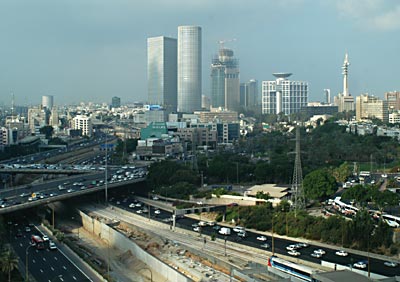IN THE MEDIA
Israel: Celebrating 63 years of independence
May 9, 2011 | Arsen Ostrovsky

Arsen Ostrovsky
The Punch – 9 May 2011
On 10 May, that little slither of land, Israel, about one third the size of Tasmania but burdened with decades of unremitting attacks on its very legitimacy and existence, celebrates her 63rd year of independence. There are good reasons why many Australians should celebrate that.
We could talk about the historical bond between our two nations dating back to the ANZACS. A bond that is underpinned by our shared commitment to freedom and democracy, and respect for women’s rights, gays, minorities and the rule of law. We could celebrate that we are both thriving multicultural states that have successfully absorbed and integrated millions of refugees and immigrants from around the world.
And it wouldn’t hurt to reflect on the irony that Israel’s Arab citizens enjoy more rights, freedoms and liberties than do their neighbours in any number of Middle East nations – where they are currently dying while fighting for these very same rights and privileges.
That perhaps explains why despite the sea of violence, uncertainty and uprisings currently gripping the Middle East, Israel continues to be the sole oasis of stability.
All these are very worthy reasons to celebrate. But there are other, no less equally important reasons.
For example, did you know that a recent popular travel website described Tel Aviv as “boasting a steamy nocturnal playground not for the faint of heart, with beachfront parties, underground clubs and bartenders who are said to be ‘notoriously generous with alcohol servings?’ Which Aussie wouldn’t love that?
Israeli company Better Place has developed transportation infrastructure technology that supports electric vehicles, aiming to reduce carbon emissions and end our dependence on oil. Incidentally, one of the first investments Better Place made outside of Israel was here in Australia, where they aim to develop similar technology.
Students at Ben-Gurion University (located in the Israeli desert of all places) have just developed a unique pointing device to help disabled people operate computers. What’s even better is that the research was done in co-operation with Australian company, Emotiv, which specialises in brain computer interface technology.
Israeli biomed start-up, Vacciguard, has just created new technology to develop vaccines against some of the world’s deadliest diseases, including cancer.
One of the unfortunate things that both Australia and Israel share is our severe lack of natural water resources. That however, has not stopped Israel being a world leader in water technology, desalination, recycling and irrigation – and exporting much of this know-how to badly needed areas affected by drought here.
Israel is the only country in the world to end the previous century with more trees than it had at the beginning. Australia could certainly learn much from Israel’s experience in re-forestation.
Israeli technology and innovation has also been responsible for bringing us such indispensable IT gadgets like the USB flash drive, voicemail technology and most of the Windows NT operating system. Bill Gates called Israel a “hi-tech superpower”, while Warren Buffett has said “Israel has a disproportionate amount of brains and energy”.
Coping with terrorism has helped develop unique search and rescue skills in Israel now in demand for disasters around the world.
Israeli medics and specialist rescue service personnel were some of the first on the ground to help earthquake and tsunami ravaged Japan, while Israel was also the first country to set up a field hospital in Haiti after their catastrophic earthquake, and also provided expert victim-identification assistance after the Christchurch earthquake.
Israel is the only country in the Middle East where the number of Arab and Palestinian Christians is not only increasing, but they are also thriving, with their freedom of worship and holy sites completely protected and secure (as they are indeed for all faiths).
In contrast, ancient Christian communities are feeling from Arab countries in record numbers, where they continue to be persecuted and their holy sites desecrated.
An Israeli humanitarian organisation, Save A Child’s Heart, which is partly funded by the Israeli government, provides life saving heart treatment – free of charge – to children from around the world. What isn’t commonly known is that fifty per cent of the children treated are from the Palestinian territories, while the remainder are from various poor and/or developing nations – many of which do not even have diplomatic relations with Israel.
Israel has managed all the above while having to spend more per capita than any other country on defence against implacable enemies whose primary goal is to see her wiped off the map, and who do not hesitate to target Israel’s civilian population.
Is Israel perfect? No, of course not. It makes mistakes and has problems, just like any other country. But at a time when many seek to unjustly delegitimise and demonise the Jewish State, it is well worth recalling her many significant, indeed extraordinary contributions to society, and how such contributions enhance everyday life in Australia.
Tags: Israel





